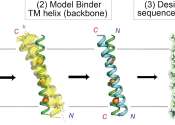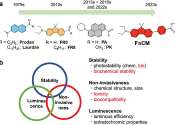How cells in plant leaves organize themselves to ensure optimal area for photosynthesis
Plant leaves need a large surface area to capture sunlight for photosynthesis. Dr. Emanuele Scacchi and Professor Marja Timmermans from the Center for Plant Molecular Biology at the University of Tübingen, together with ...









